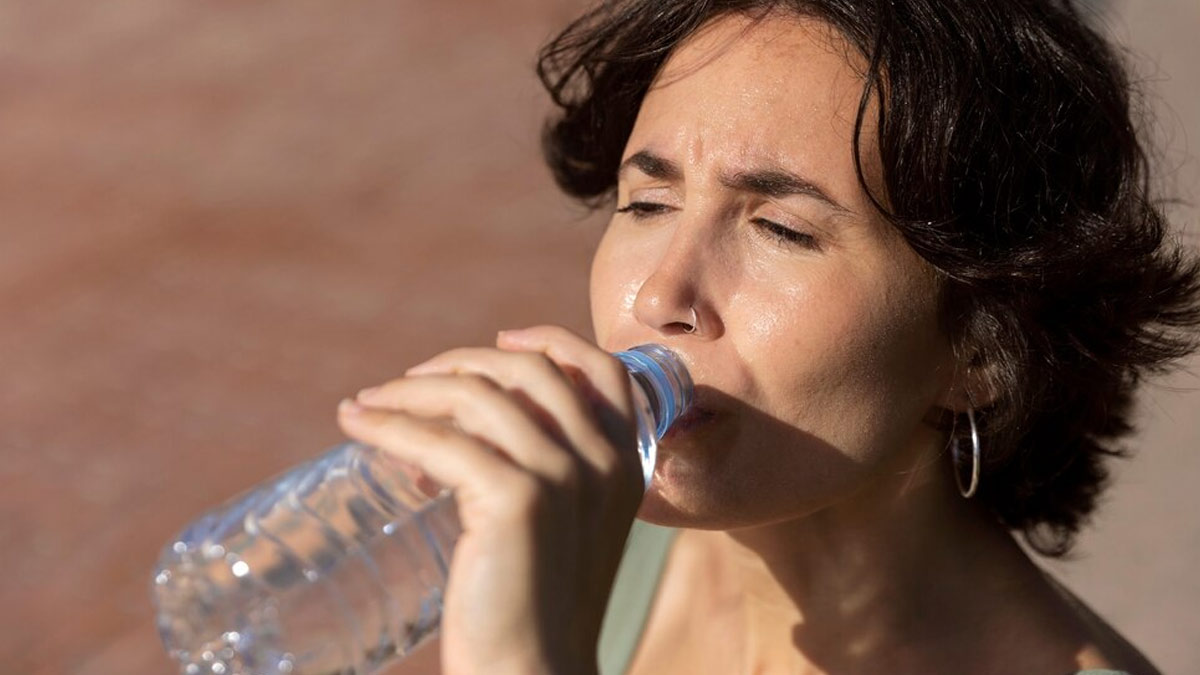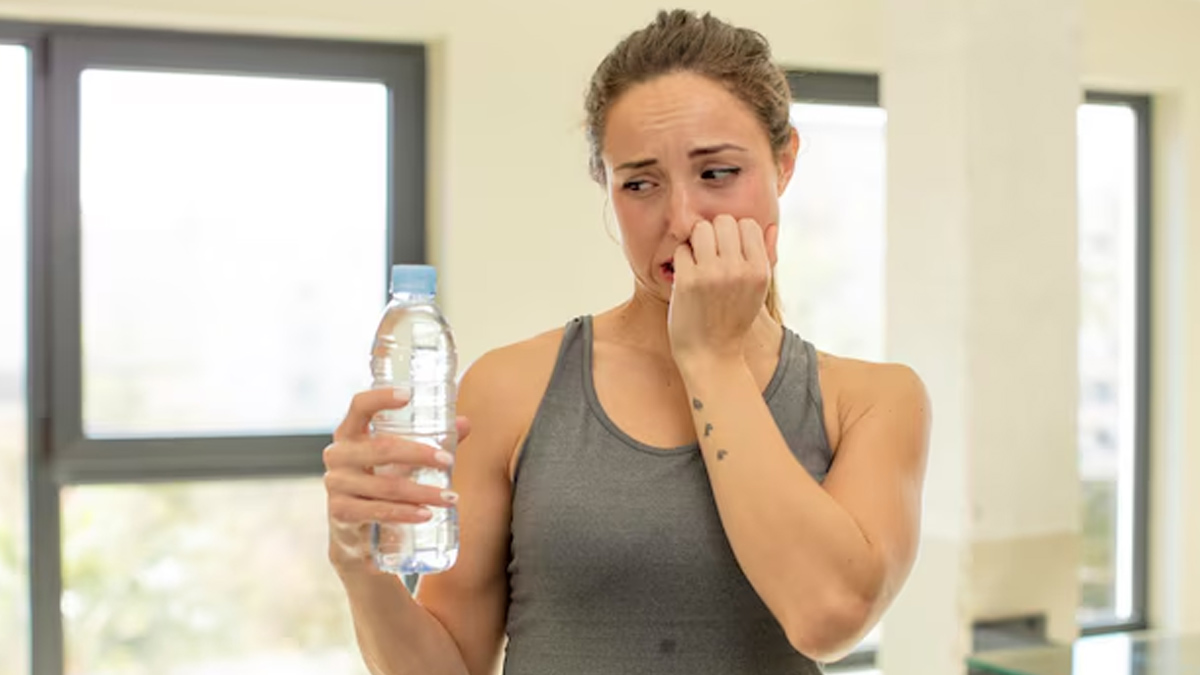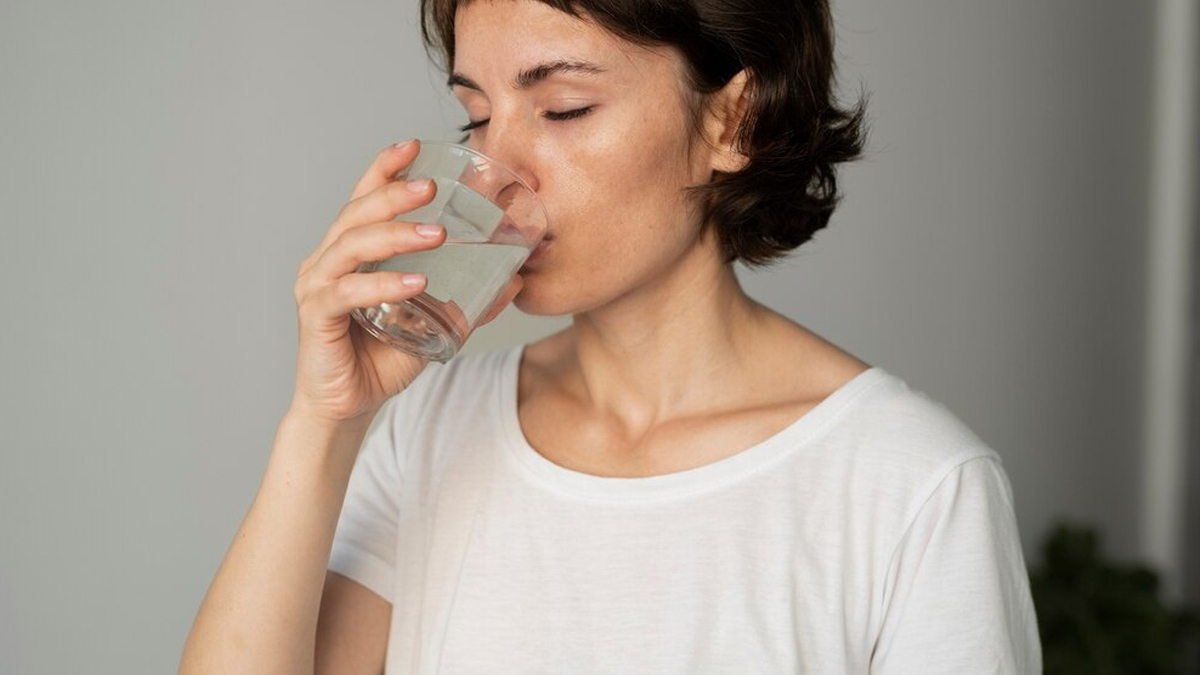
Dehydration is a common condition that occurs when the body lacks adequate fluid levels, often due to inadequate fluid intake, excessive sweating, or health issues like vomiting, fever, or diarrhoea. While many people recognise and address the symptoms of dehydration on time, some may experience silent dehydration, where the signs are less obvious. This can be particularly concerning if not identified and treated promptly, as it can lead to more serious health complications.
Table of Content:-
In an interaction with the OnlyMyHealth team, Dr B. Ravinder Reddy, Senior Gastrointestinal and General Surgeon at CARE Hospital—The Institute of Medical Sciences, Banjara Hills, Hyderabad, Telangana, sheds light on what silent dehydration is and ways to identify it on time before it comes severe.
Also Read: Dehydration: Signs That You're Not Having Enough Water
What Is Silent Dehydration?![]()
Dr Reddy describes silent dehydration as a condition where the body loses more fluids and electrolytes than it takes in, often without obvious symptoms that would prompt immediate action and hence remains unrecognised.
According to him, the condition is particularly "insidious,” as it can occur during vigorous daily activities or mild non-diarrhoeal illnesses, such as fever, respiratory infections, or in hot and humid climates like those found in India.
It is crucial to note that silent dehydration is prevalent among certain groups of people. These include children, the elderly, diabetics, and pregnant women.
Research suggests that the elderly population is about 20–30% more prone to developing dehydration due to immobility, impaired thirst mechanisms, diabetes, renal disease, and falls.
Why Early Detection Is Key?![]()
Dr Reddy emphasises the importance of detecting silent dehydration early because it can take a toll on overall health, performance, and well-being, often without obvious warning signs.
"Dehydration affects fluid-electrolyte balance and essential bodily functions, such as temperature regulation, cardiovascular efficiency, muscle function, and cognitive performance," he explains, adding that when the body is dehydrated, even mildly, it can lead to a reduction in physical activity and cognitive performance, making everyday activities more challenging.
He further notes that without adequate fluids and electrolytes, the body's ability to function optimally may be compromised, leading to various health issues.
For instance, during fever, dehydration can occur due to increased insensible (invisible) fluid losses through sweating and respiration. Each degree Celsius rise in temperature above 39°C (102°F) in adults can lead to a 25% increase in fluid losses via sweating and breathing. This can result in the loss of up to 1000 ml of fluids over 24 hours for every degree Celsius rise beyond 39 °C. This fluid loss, when combined with reduced food and fluid intake due to loss of appetite, can lead to fluid electrolyte and energy deficits, which prolong the recovery period.
Also Read: Why Dehydration Causes Heart Palpitations: Understanding The Link
Signs Of Silent Dehydration To Watch Out For
Some of the common symptoms of silent dehydration can include:
- Fatigue
- Thirst
- Dry skin and dry lips
- Dark urine or decreased urination
- Headaches
- Muscle cramps
- Dizziness
- Constipation
According to Dr Reddy, in children and the elderly, it can be particularly challenging to assess dehydration, but signs like poor skin elasticity, weight changes, dark-coloured urine, dry tongue, and reduced urine frequency may be indicative. If such features or signs are observed, especially in children, it is important to seek medical attention.
How To Hydrate Your Body (In Addition To Drinking Water)![]()
In general, experts advise drinking eight glasses of water every day to stay hydrated. However, Dr Reddy suggests that it may not be sufficient or necessary for everyone.
“The Indian Expert Panel emphasises that plain water, while crucial, may not always be enough to address fluid electrolyte energy deficits in non-diarrhoeal conditions due to lack of electrolytes and energy as well as due to taste fatigue, which leads to poor compliance,” he shares, adding that water alone does not provide the electrolytes necessary for maintaining fluid balance in the body.
Additionally, since body fluids contain electrolytes, dehydrated individuals will always lose electrolytes like sodium, potassium, etc. along with water.
So, what can you do to properly hydrate your body?
For diarrhoeal conditions, electrolytes can be replenished with WHO ORS. For non-diarrhoeal conditions, electrolyte drinks with energy play an important role in recovery.
“In my practice, I advise patients to stay hydrated by not only drinking plenty of water but also consider ready-to-serve electrolyte drinks given their known concentration of electrolytes and energy as well as convenience. These options ensure that individuals ailing from silent dehydration receive a balanced intake of fluids and essential electrolytes, which is crucial for maintaining normal bodily functions and overall health,” the doctor highlights.
Also watch this video
How we keep this article up to date:
We work with experts and keep a close eye on the latest in health and wellness. Whenever there is a new research or helpful information, we update our articles with accurate and useful advice.
Current Version


